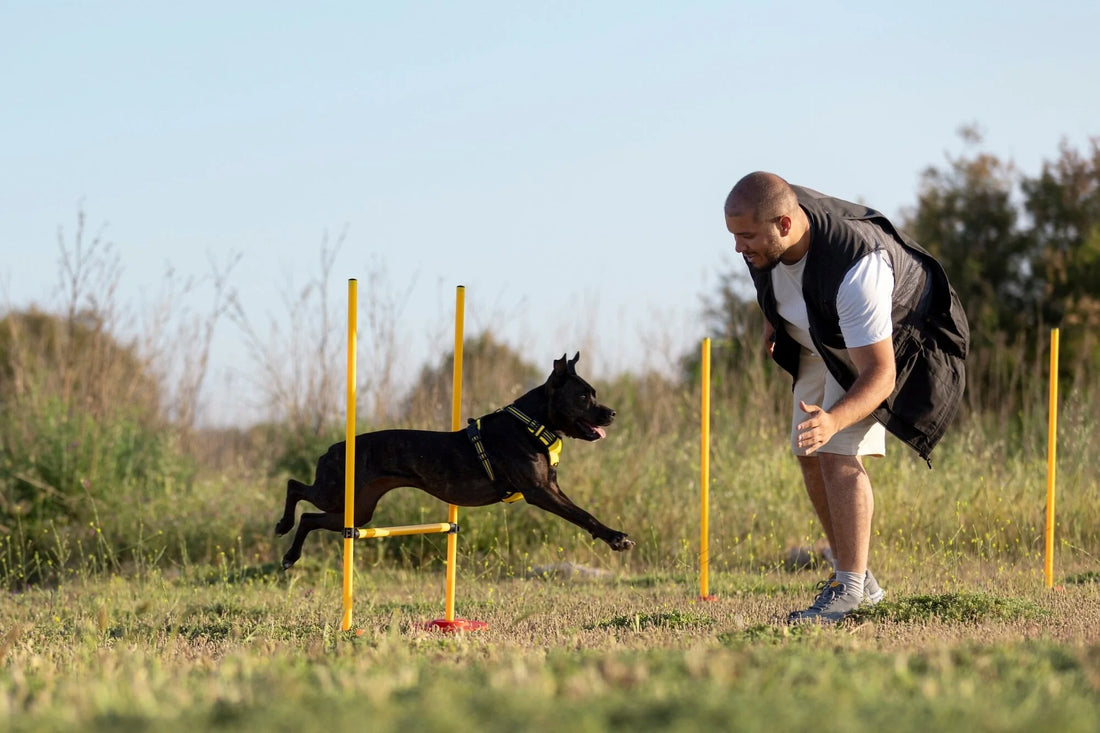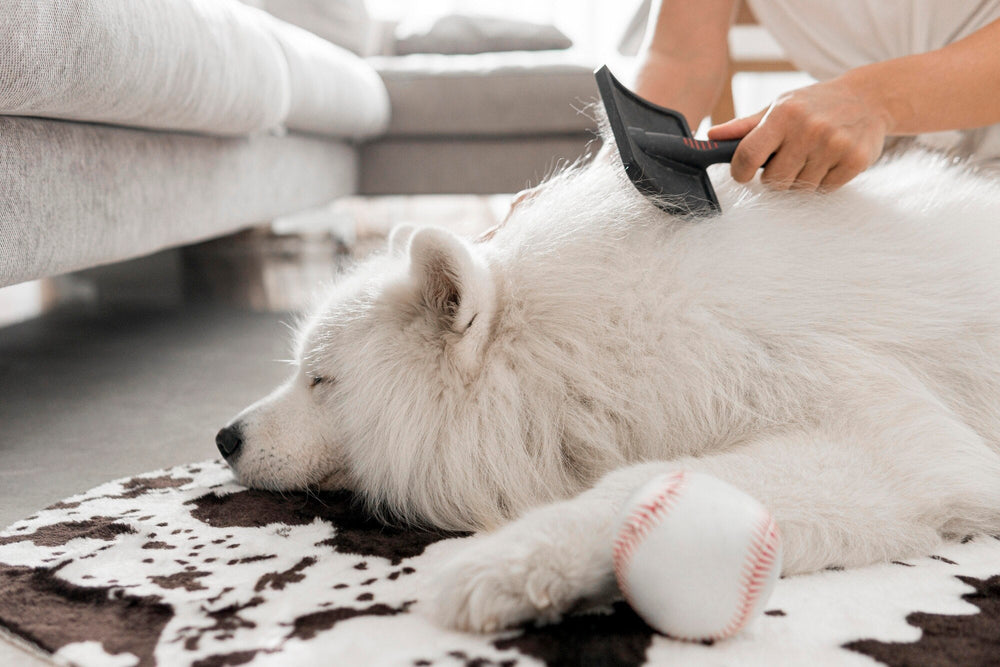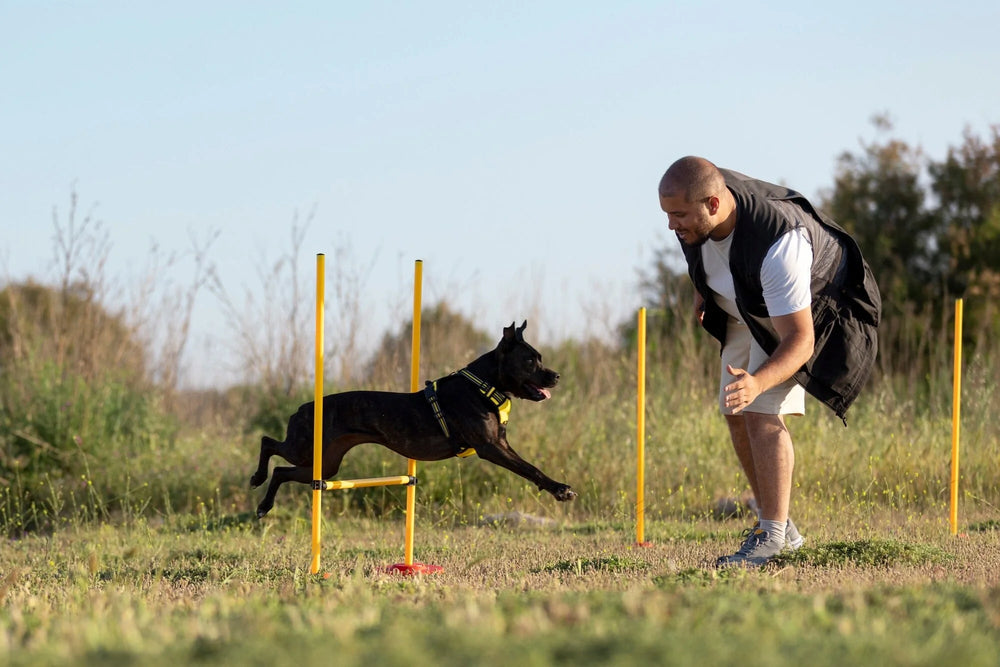The connection between nutrition and cognition isn't just relevant for humans—it profoundly impacts our canine companions as well. What your dog eats directly influences how well they learn, remember, and perform during training sessions.

Smart Treat, Smart Dog: How Nutrition Affects Learning and Training Success
The connection between nutrition and cognition isn't just relevant for humans—it profoundly impacts our canine companions as well. What your dog eats directly influences how well they learn, remember, and perform during training sessions. Understanding this brain-food connection helps explain why TailBlaze Grandma's Cheese treats can dramatically improve training outcomes and cognitive performance in dogs of all ages.
The Neuroscience of Learning: What Happens in Your Dog's Brain During Training
When your dog learns a new command or behavior, complex processes occur in their brain:
- Attention activation: Neural networks in the prefrontal cortex focus attention on relevant cues
- Information processing: Sensory inputs are interpreted and associated with commands
- Memory formation: New neural connections form to encode the learning
- Skill consolidation: Repeated practice strengthens these neural pathways
- Behavioral execution: Motor neurons activate to perform the learned behavior
Each of these processes requires specific nutrients to function optimally. Without them, learning becomes more difficult, retention decreases, and training sessions become frustrating for both dog and parent.
Key Nutrients That Power Canine Learning
1. Omega-3 Fatty Acids (DHA & EPA) These essential fats comprise approximately 60% of the brain's structure and:
- Enhance neuron membrane fluidity for faster signal transmission
- Support growth of new neural connections
- Improve attention span and focus
- Reduce inflammation that can impair cognitive function
Research shows puppies fed diets rich in DHA demonstrate significantly better learning and memory capacities than those on standard diets.
2. Choline This often-overlooked nutrient is crucial for:
- Production of acetylcholine, a neurotransmitter essential for memory and learning
- Maintaining neuron membrane integrity
- Supporting attention and focus
- Age-related cognitive protection
Cheese, a key ingredient in Grandma's Cheese treats, is naturally rich in bioavailable choline.
3. Antioxidants Learning creates metabolic byproducts that can damage brain cells if not neutralized by antioxidants. Key brain-protecting antioxidants include:
- Vitamin E protecting neural membranes
- Vitamin C supporting overall brain health
- Selenium enhancing antioxidant enzyme function
- Naturally occurring flavonoids with neuroprotective properties
4. B Complex Vitamins These vitamins serve as essential cofactors for energy production and neurotransmitter synthesis:
- B1 (thiamine) for glucose metabolism in brain cells
- B6 for neurotransmitter production
- B12 for nerve myelination and signal transmission
- Folate for neural development and function
Deficiencies in B vitamins rapidly affect brain function, with studies showing even mild insufficiencies can impair learning and memory.
5. Quality Proteins and Amino Acids Proteins provide the amino acids needed to:
- Build neurotransmitters that facilitate learning
- Create and repair neural structures
- Support brain metabolism and energy systems
- Maintain balanced brain chemistry
Training-Specific Nutritional Timing
When you offer treats during training affects how well they support learning:
-
Before training: Nutrients that enhance focus and attention (like those in Grandma's Cheese treats) can improve initial learning when provided 30-60 minutes before sessions.
-
During training: Quick-metabolizing proteins and fats provide immediate brain energy and neurotransmitter support for association-building.
-
After training: Post-training nutrition supports memory consolidation, with studies showing nutrient timing can enhance retention of newly learned behaviors.
The Grandma's Cheese Advantage for Canine Cognition
TailBlaze Grandma's Cheese treats deliver a scientifically formulated blend of brain-supporting nutrients:
-
Premium protein sources (chicken breast and real Amul cheese) provide optimal amino acid profiles for neurotransmitter production and neural repair.
-
Beneficial fats include brain-essential omega-3s and other fatty acids that support neural membrane function and signal transmission.
-
Naturally occurring B vitamins from both chicken and cheese support energy metabolism in brain cells during demanding learning sessions.
-
Calcium and other minerals from real cheese support proper neuron function and signaling capacity.
This comprehensive cognitive support explains why many pet parents report improved training success, better focus, and faster learning when using Grandma's Cheese treats as training rewards. By delivering brain-boosting nutrition in a highly palatable format, these treats help maximize your dog's learning potential.
Transform your training results with TailBlaze Grandma's Cheese treats—because a well-nourished brain learns faster, remembers longer, and performs better.






